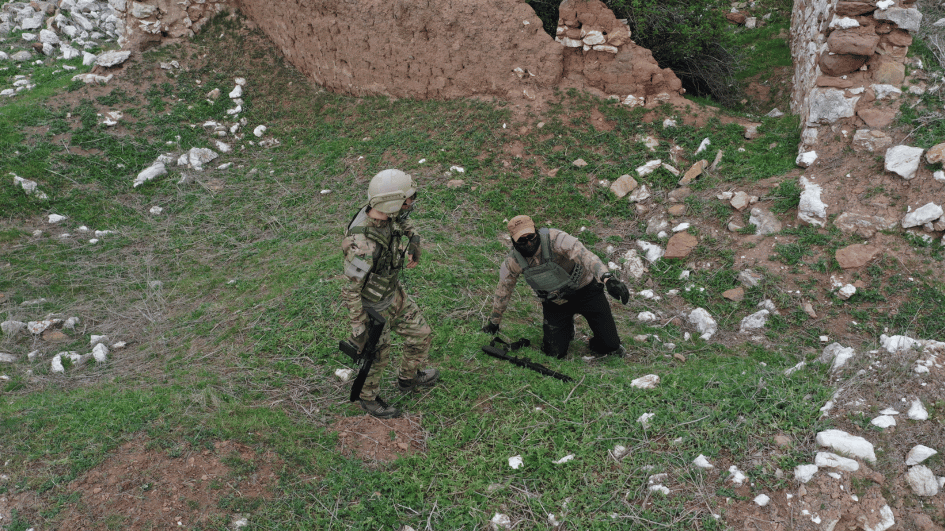Time for bold steps on Cyprus, eastern Mediterranean, Turkey’s EU bid
No longer, there is just a Cyprus problem. It is not about how to share the hydrocarbon resources of the eastern Mediterranean, either. The problem is no longer limited to the acute Turcophobia (anti-Turkism) of some European politicians. Neither it is a new phase of the continued lack of sincerity in embracing Turkey nor Turkey’s part in conforming to the rules of the game required to accelerate the EU accession process. Talking of the identity problem based on enemy perception? It is there as well.
In Turkey, Aug. 30 marks as the Victory Day. Which victory? The decisive victory in the Battle of Dumlupınar that took place on the same date in the year 1922 against the invading Greek military, a defeat that for Greeks was the Asia Minor Catastrophe. The two countries have been frenemies ever since. Can they again go to war over the eastern Mediterranean’s hydrocarbon resources, ownership of a rocket in the Aegean or some provocative actions such as the deployment of troops on Aegean or Mediterranean island in violation of agreements, like the recent foolish troop deployment on Kastellorizo (Meis)? What if Greek and Turkish jets engage in a nasty confrontation that might end in a dogfight?
Just a few days ago, Turkish jets send-off six Greek fighters violating the NAVTEX that Turkey declared.
Libya connection, the Syria situation, the Arab-Israeli backlash on the Mediterranean is there as well. Muslim brotherhood connections and the Turkey-Egypt polarization can also be seen. Americans are trying to mediate out of the fear of losing regional superiority to Russia, worse to the European Union. Germany’s Angela Merkel wisely has been advocating a diplomatic way out of the eastern Mediterranean quagmire, but her hands are tied with the requirement to be in solidarity with EU-member Greece, as well as with France.
If anyone is claiming that a mistake or provocative action might trigger an all-out war, which hopefully will not be a world war, but definitely will be one with nightmarish consequences beyond imagination.
Turkey cannot compromise either on the Aegean, eastern Mediterranean or in the Libya policy. The casus belli declaration is still there and if Greece, as it has been trying to do in the Adriatic, increases its territorial waters in the Aegean, that would be understood by Ankara as Greece declaring war on Turkey. Because of the tiny island, Kastellorizo, or a little bigger island, Crete, Turkey, a country with the longest Mediterranean coastline, could accept to become almost a landlocked country cannot be reconciled with reason, logic or intellect. Obviously, if it requires fighting for the defense of Turkey’s rights and interests in the eastern Mediterranean, irrespective of who is in power, Turkey is compelled to undertake such a challenge.
Neither Cyprus nor the Aegean or eastern Mediterranean issues can be resolved with the spoilt attitudes of Greece or because of club obligations of the EU acting in solidarity with Greece.
Economic problems, the traumas that the Turkish military has undergone over the past decade, the collective might of the EU and the United States and such factors might serve as deterrence and help postpone the problems that unfortunately have become gangrenous. The Schuman doctrine like schemes suggested by Germany should be seriously considered. Rather than declaring a two-year moratorium in hydrocarbon activity and meantime creating alternate energy resources (including linking both parts of the island to the European electricity grid), schemes to make the two sides interdependent might be helpful. Creation of a joint company (or an ad-hoc commission) of all related parties – that is Greek Cypriots, Turkish Cypriots, Turkey and Greece – regarding the eastern Mediterranean and a Turkish-Greek joint company for Aegean resources might help in opening a new era of regional wealth and welfare. Also, as regards Cyprus, a half-century of federation talks could not succeed.
Perhaps it is time to go to the two peoples of the island once again and ask them on what they want:
1- A United Federal Cyprus, based on the bi-zonality, bi-communality principles and based on the political equality of the two founding peoples, with rotating presidency and effective political participation.
2- A two-state solution, both members of the European Union. As there will be no physical borders between the two states, this second option would mean a de-facto indirect federation.
Coming up with a final and clear decision on Turkey’s EU bid, rather than imposing sanctions, alienating Turkey and derailing the 60-year-old love-hate story might be a catalyzer to all these developments.
Perhaps it is wiser to take some bold decisions before undergoing very painful and nightmarish consequences of antagonist approaches.











